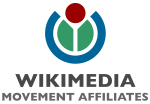Desenvolvimento organizacional
- CH Wikimedia CH
- GB Wikimedia UK
- KR 위키미디어 한국
- US-NYC Wikimedia New York City
- CAT Amical Wikimedia
- ESP-WE Wikiesfera Grupo de Usuarixs
- H-GAPS H-GAPS User Group
- MK-SK Shared Knowledge
- NGA-HA Hausa Wikimedians User Group
- NGA-IG Igbo Wikimedians User Group
- RU-Don Don Wikimedians User Group
- US-NE New England Wikimedians
- WJ WikiJournal
- WK? Whose Knowledge?
There is currently a gap in the provision of support, training and shared learning available to Wikimedia Movement organisations.
Running a Wikimedia movement organisation (chapter, user group, thematic organisation, and indeed the Foundation) is quite difficult. There are many challenges, and these challenges vary throughout the life of an organisation. Giving volunteers the skills and confidence to take on these challenges is important for the future health of the Wikimedia movement.
Principles
These are some principles about how to tackle these issues.
- Doing this is everyone's job. There is no single body responsible for training and supporting movement organisations (the Wikimedia Chapters Association aimed to, but didn't work out). So, it is a responsibility that all movement entities have, in whatever form!
- Encourage initiative. We should encourage people to set things up and experiment. No-one is able to "solve" the issue right away. So it's more important to take practical, concrete steps for part of the picture, than it is to try to work out a solution to the whole thing.
- Use knowledge wherever it can be found. Different people and organisations, both inside and outside the movement, have different pieces of the picture. From within the movement, there are people with skills and experience who will be happy to share them. Outside the movement, there are national and international sector bodies and consultants who can advice.
- Share plans, ideas and results. It will be important to learn from different organisational development initiatives.
Training and development needs
Part of the problem is that we don't have any systematic view of what the development needs of Wikimedia organisations are.
The WMF Grantmaking team surveyed a number of boards of movement organisations to get some data on what issues Boards face. The results can be found here.

- Governance:
- The role of a non-profit board; Board self-development.
- Strategy development:
- How to develop a strategy, effective goal-setting.
- Hiring and working with staff:
- Relationships between boards and EDs, defining boundaries, effective management.
- Personal effectiveness:
- Time management; Resolving conflict and disagreement; Negotiation skills; Managing stress.
- Board effectiveness:
- Effective teambuilding.
- Dealing with annual plans & reporting.
- Successfully planning multiday events while avoiding common pitfalls.
- ++ please add more.
Methods and resources
Training workshops
- Standalone, e.g. London workshop in March 2014.
- As part of Wikimedia conference / Wikimania.
- National / local training for volunteer organisations.
- What can Wikimedia learn from the Red Cross and other large volunteer driven organizations (video), How to incorporate volunteers and enthusiasts according to their available time and interests, and help people move into different roles as their situations change.
- List of organizational development and training resources.
Peer-review and mentoring
A small number of peer reviews have taken place:
- March 2013: Wikimedia Argentina, blog post and final report.
- April 2013, Wikimedia Estonia.
Shared experience
Some Wikimedia movement entities have created records of their learning experiences to share with the movement:
- Wikimedia UK: February 2013 Governance Review and October 2013 followup audit.
- Wikimedia France: Reflections on 2012-14, email from Christophe Henner to Wikimedia-l.
- any resources on WMF governance improvement.
Online learning
Strategy development
Conflict management
- 'Negotiation', essay, beyondintractability.com.
- 'Analyzing Disputes', lecture, Saylor Foundation.
- 'Managing Conflict', lecture, Saylor Foundation.
Who do we know in the movement who can help out with this stuff?
| Name | Languages | Location | Time zone | Specialization |
|---|---|---|---|---|
| Benjamin Mako Hill | en, am-1, fr-1 | Seattle | UTC-8 | free knowledge/culture scientist/activist, assistant professor of communication at University of Washington |
| Dariusz Jemielniak (Pundit) | pl, en-4, de-1, ru-1 | Warsaw/Copenhagen | UTC+2 | professor of management interested in strategy and technology startups development |
| Aaron Shaw | en | Chicago | UTC-6 | assistant professor of communication at Northwestern studying mobilization and engagement in online systems |
| Piotr Konieczny | pl, en-4 | Seoul | UTC+9 | assistant professor of sociology in Seoul, studying peer-production governance |
Please add more
- AffCom Liaison system for chapters / thematic organizations / user groups.
- Chapters Dialogue: Dossier, summary of insights and a 30 minutes movie of the project where 94 movement members from Chapters, Wikimedia Foundation, FDC and AffCom were interviewed.
To Do
- How to hire your first staff member
- strong focus on prerequisites e.g. your organisation's plans and impact; agreeing the management structure (one line manager not whole board!)
- More structured materials on how to avoid burnout (based on notes/learnings from the 2 workshops)
- personal effectiveness, communication methods; managing your own time and expectations
- Risk management (?)


